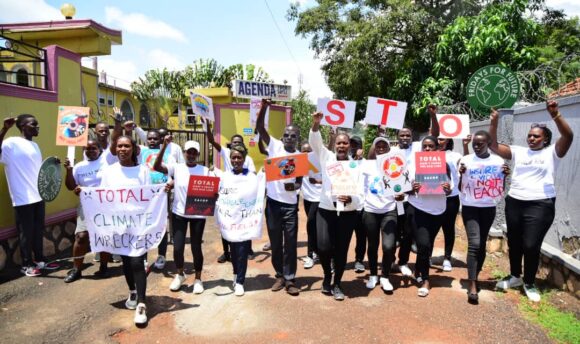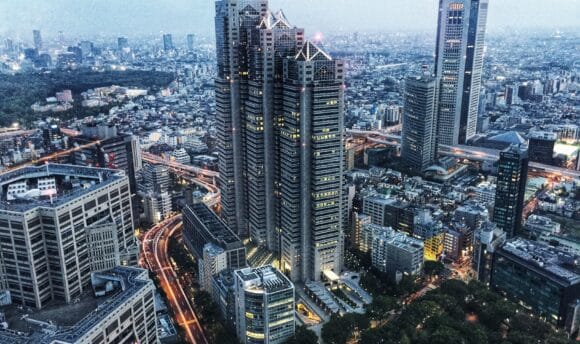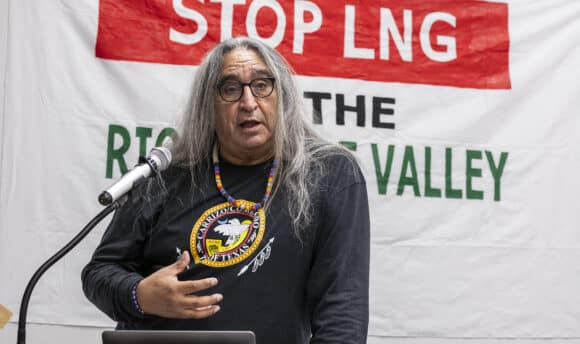Tokio Marine, Japan’s biggest property and casualty insurer and the 15th largest fossil fuel underwriter in the world, announced on 13th March that its largest subsidiary, Tokio Marine & Nichido Fire Insurance Co. Ltd. (TMNF), is strengthening its engagement policy with 60 companies in high Greenhouse Gas (GHG) intensive sectors, and commits to stop insuring, investing and financing them if they do not have a ‘decarbonisation plan’ in place by 2030.
“We welcome this policy update as the first approach by an Asian insurer to phase out support for harmful oil and gas companies that are not aligned with a liveable future. However, the policy needs further improvement to clarify alignment with the global 1.5°C warming target, and to end support for fossil fuel expansion.”
This announcement comes just two weeks after the Insure Our Future Global Week of Action, during which thousands of people took part in over 100 actions organised by civil society organisations across 31 countries. Tokio Marine was one of the insurers targeted by a large number of activists globally, as the company has not yet ruled out support for the highly controversial East African Crude Oil Pipeline (EACOP). A recent investigative report also revealed Tokio Marine to be an underwriter of the Cameron LNG and the Gulf LNG projects in the United States.
“The Insure Our Future’s global week of action sent an extremely powerful message to the insurance industry that it must introduce exclusion policies on fossil fuels now, because later is too late. We welcome this first step by Tokio Marine to improve their climate policy, but expect more from them. Companies like Tokio Marine have the power to push for a cleaner, safer world for the next generation, and they must rule out insuring harmful fossil fuel projects, such as the East African Crude Oil Pipeline. Civil society organisations will continue their pressure until Tokio Marine rules out the project.”
Although NGOs welcome Tokio Marine’s policy improvement, the company’s approach could be further strengthened in several ways. The first limitation to note is that Tokio Marine still relies on engagement to achieve its net zero goal rather than establishing GHG emissions reduction targets in its underwriting portfolio, which some of its global competitors have already done. This raises questions about how ambitious the policy update is, especially when compared with Tokio Marine’s domestic insurance peer, MS&AD. In November 2023, MS&AD announced an intermediate GHG emission reduction target of 37% in its underwriting portfolio by fiscal year 2030, the first property and casualty insurer in Asia to do so. Moreover, Tokio Marine’s updated policy does not preclude the possibility of continuing to underwrite oil and gas expansion, falling short of commitments made by global insurers such as Allianz, which has committed to cut emissions in their underwriting portfolio and cease insuring and investing in new oil and gas fields.
It is notable that Tokio Marine’s policy only relates to TMNF, however it should also be applied to its overseas subsidiaries, including Tokio Marine Kiln. The definition of what constitutes a ‘decarbonisation plan’ remains vague and needs clarifying, and such plans should align with the standards laid out in the United Nations’ High-Level Expert Group (HLEG) on the Net-Zero Emissions Commitments of Non-State Entities. Tokio Marine states that it wants to ‘accelerate initiatives to combat climate change.’ This should include adhering to the timeline specified by the International Energy Agency, which states that net zero in the power sector needs to be achieved by 2040, and that transition plans for fossil fuel companies should be developed by 2025, rather than 2030.




